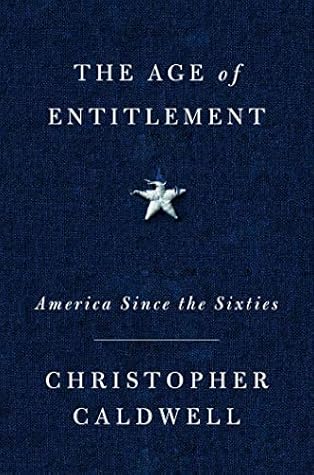More on this book
Community
Kindle Notes & Highlights
Read between
March 19 - April 20, 2020
In Griggs v. Duke Power Co. (1971), the Supreme Court justices asked whether a power plant in North Carolina could give aptitude tests to its employees. Title VII (Section 703) of the Civil Rights Act had said they could. But Chief Justice Warren Burger and a unanimous Court decided they could not,
As early as the spring of 1975, among those who blocked its passage, the reason most often cited was that “equal rights for women could eventually end up destroying the institution of marriage and family life.”
When the whites of South Boston and Charlestown protested, their neighborhoods were put under military occupation. “Southie” had a curfew and laws against public assembly, enforced by 1,600 police officers, 100 federal marshals, 50 FBI agents, and 600 National Guard troops. Whites made up 60 percent of the public school system on the eve of busing, less than 20 percent when it had finally done its work, little more than a decade later.
Until 1975 religion, measured by both professed belief and church attendance, had been falling off, but it then began a steep rise that would last two decades.
At the start of the 1970s, homeowners—often in single-earner families—generally spent two-and-a-half years’ worth of their income when they bought a house. That number began to rise and rise. By 2010, it had nearly doubled. Buying a house now took almost four-and-a-half years of a family’s earnings. People could sense the deteriorating relative position of the working class even before it showed up in the statistics.
Americans in all walks of life began to talk about the smallest things as if they would have their lives destroyed for holding the wrong opinion.
Only with the entrenchment of political correctness did it become clear what Americans had done in 1964: They had inadvertently voted themselves a second constitution without explicitly repealing the one they had. Each constitution contained guarantees of rights that could be invoked against the other—but in any conflict it was the new, unofficial constitution, nurtured by elites in all walks of life, that tended to prevail.
In 2010 the investor Warren Buffett won praise for backing President Obama’s suggestion of a 30 percent minimum income tax for those making over a million dollars a year, a guideline that Obama tried to endear to the American public by attaching Buffett’s name to it. Buffett admitted he paid a rate of only 17.4 percent (about $6 million) on his income of $40 million a year. It took the supply-side economist Arthur Laffer to point out—correctly—that in 2010 Buffett’s net worth had actually risen not by $40 million but by $10 billion, a figure that was 250 times as large as the one Buffett
...more
The decline of white America In 2010, the fifteen most common surnames in the country were Smith, Johnson, Williams, Brown, Jones, Garcia, Miller, Davis, Rodriguez, Martinez, Hernandez, Lopez, Gonzales, Wilson, and Anderson. There had been no Hispanic names on the list in the 1990 census. The six that suddenly appeared bumped out Moore, Taylor, Thomas, Jackson, White, and Harris. The country now had more Nguyens than Bakers or Turners or Coopers or Cooks, and more Patels than Powells. Wong, Wang, and Yang outranked Davidson, Pearson, and Benson.
The commentator Fareed Zakaria compared America’s working-class whites to Russians after the Soviet collapse: “They were central to America’s economy, its society, indeed its very identity,” he wrote. “They are not anymore.”


